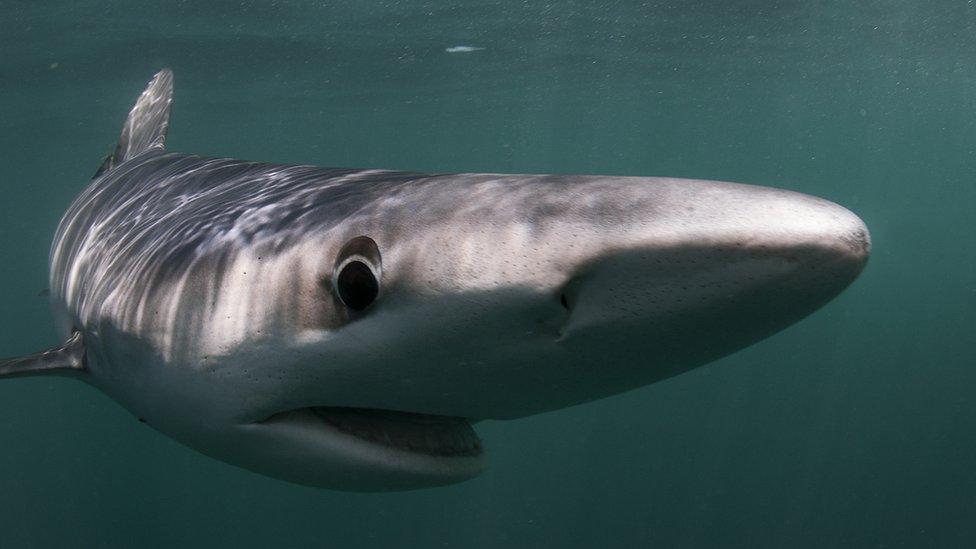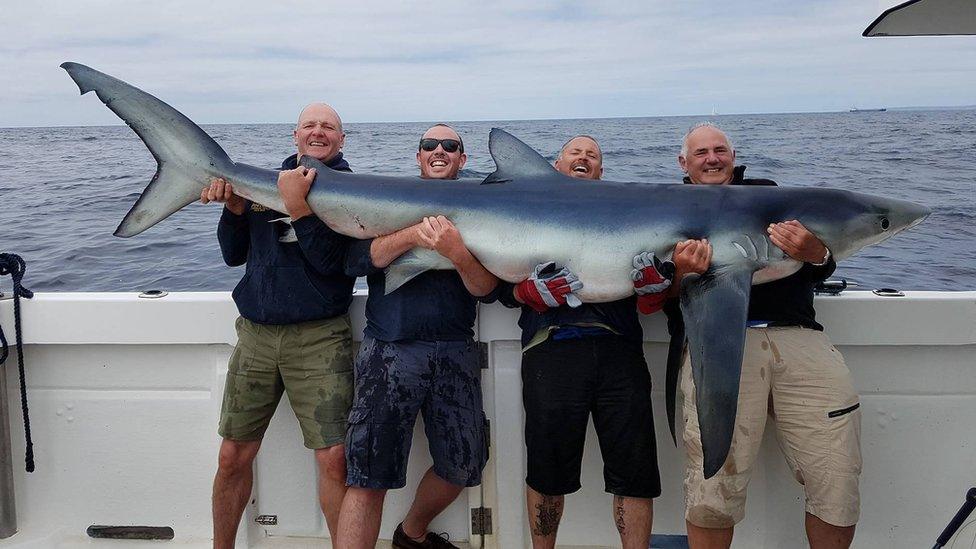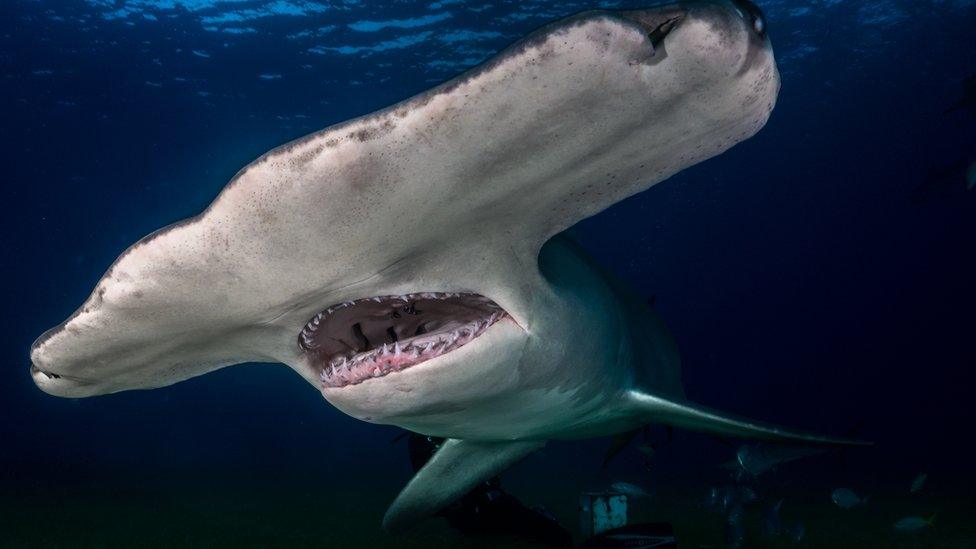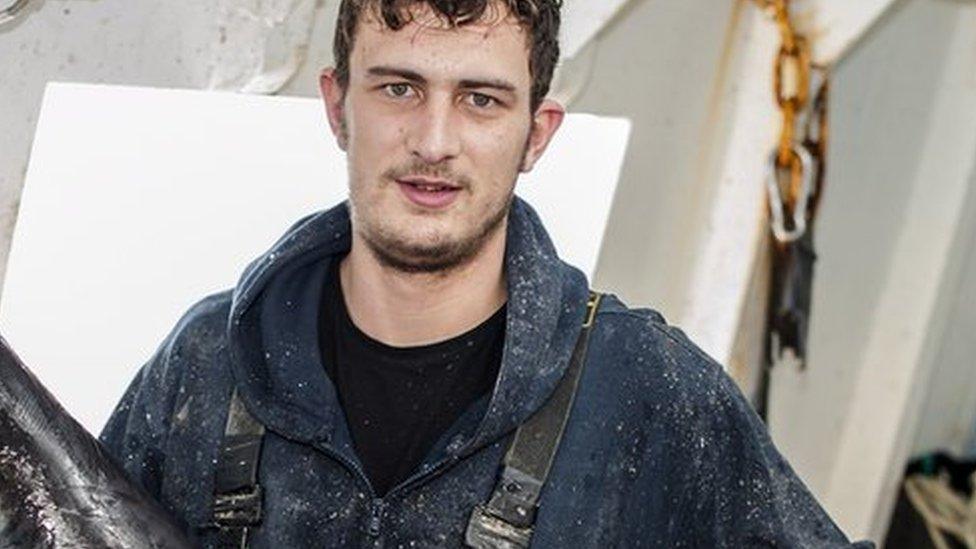Swimmers warned over 9ft blue shark in St Ives, Cornwall
- Published
Footage courtesy of Harry Hocking
Swimmers are being urged to stay out of the water after a blue shark was spotted in a Cornish harbour.
The 9ft (2.74m) creature was seen close to shore in St Ives on Monday.
It was captured on film by teenage friends Harry Hocking and Archie Pickin, both 16.
The Shark Trust confirmed it was a blue shark - Prionace glauca - which is a seasonal visitor to UK waters - and advised people not to swim in the harbour with the animal.
"To see a free-swimming blue shark close to shore like this is a real privilege," the Shark Trust said.
Read more news from Devon and Cornwall
Spokeswoman Ali Hood said the sharks should be seen as wild animals and should be "treated with respect".
However, she added: "If this shark remains present in St Ives harbour, due to the confined nature of the harbour, the trust strongly advises people not to get into the water with the shark."

The blue shark's diet includes octopus, squid, mackerel, tunas, lobsters, crabs, small sharks and sometimes seabirds
Possible reasons for the shark coming so close to the shore include injury or illness, or perhaps disorientation after following prey inshore.
''Blue Sharks are predominantly an oceanic, open water species, and not commonly found close to shore," said Ms Hood.

The largest blue shark caught in the UK was landed off Cornwall last July and then released
"That said, it is certainly not unprecedented to see one in such shallow waters with similar instances recorded here in the UK and overseas from time to time."
Blue shark attacks are rare and they are nomadic creatures, only appearing in British waters during the summer.
Research from the University of Southampton suggests that new kinds of shark could migrate to UK waters as the oceans warm.
Dr Ken Collins, from the university's National Oceanography Centre, said 10 species of shark found in warmer parts of the world could inhabit UK waters by 2050 because of climate change.

Blue sharks:
They live in temperate, tropical and subtropical waters up to 1,150ft (350m) deep
They are nomadic and follow a clockwise migration pattern in the ocean from the Caribbean following the Gulf Stream
Their number of offspring ranges from about 25 to 50
Twelve unprovoked attacks and four boat attacks have been documented by the International Shark Attack File

You may also be interested in:
- Published17 July 2018

- Published14 May 2018

- Published2 August 2017
